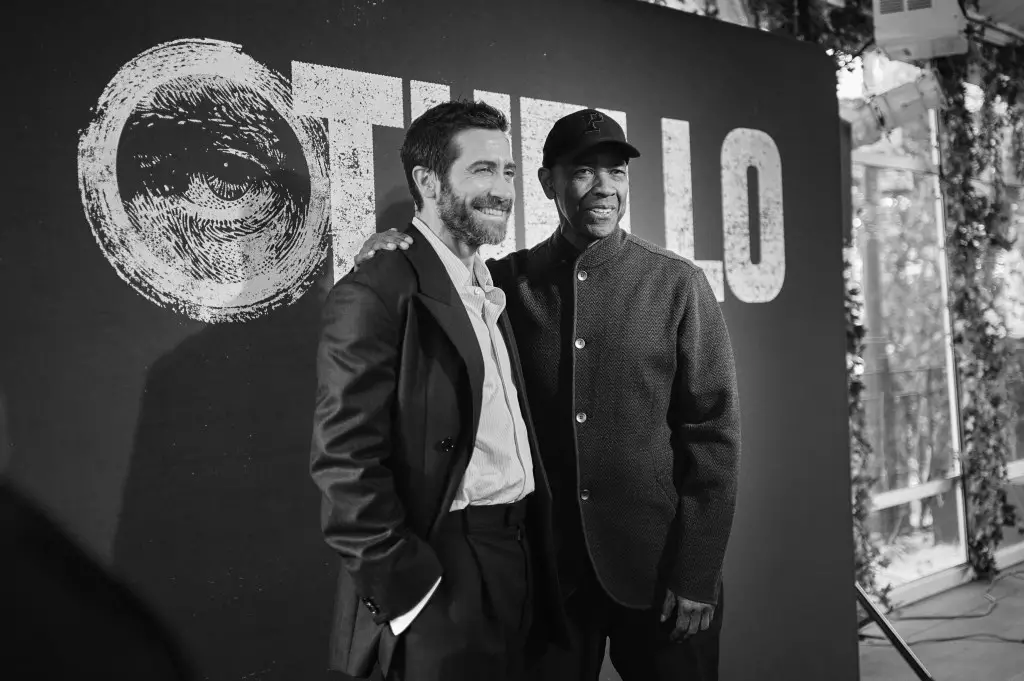The recent Broadway revival of Shakespeare’s timeless classic, Othello, featuring star power from Denzel Washington and Jake Gyllenhaal, has turned heads not only for its stellar cast but also for the groundbreaking financial figures it has achieved. In its initial preview week, Othello smashed four long-standing house records at the Ethel Barrymore Theatre, grossing an astonishing $2,637,158. This figure isn’t just impressive; it sets a new gold standard, eclipsing previous records held by shows like The Band’s Visit and Waitress. What’s remarkable is that audiences are increasingly willing to invest in quality performances—evidenced by the average ticket price soaring to $361.90, which dwarfs rival shows that struggle to command over $150 per seat.
This financial triumph creates a new narrative in the theatre industry—if you package talent and narrative effectively, the audience will respond positively. We find ourselves at a crossroads where traditional metrics of success are being redefined, underscoring a growing trend where high-quality performances become financially viable and profitable undertakings rather than extravagant risks.
Denzel Washington and Jake Gyllenhaal are more than just actors; they are cultural icons who draw significant attention and ticket sales. Their collaboration in Othello has not only resulted in heightened public interest but has also generated considerable advance ticket sales, reported at over $27.5 million. Such star-studded projects are crucial for keeping Broadway vibrant and relevant, particularly in an era where audiences are bombarded with entertainment options across multiple platforms, from streaming services to video games.
This phenomenon also brings to light an interesting correlation: investing in renowned figures can often yield greater returns than lesser-known casts. It forces a broader discussion about how much financial weight the reputations of these actors carry, allowing producers to take calculated risks while breathing new life into classic works.
The staggering figures come as a wake-up call for many theatrical productions that offer either lackluster performances or rely solely on nostalgia to attract audiences. With Broadway grossing $27 million in total earnings for the week and individual productions achieving unprecedented heights, there is a clear message: audiences are hungry for innovation paired with quality. Even productions like Gypsy and MJ, which have proven successful, witnessed fluctuations that indicate market sensitivity. A slight dip in attendance or revenue, such as MJ’s loss attributed to special performance pricing, reflects a competitive landscape that demands constant adaptation.
Furthermore, Othello’s results compel producers to evaluate their pricing strategies, casting choices, and storytelling approaches critically. The box office data illuminates a trend where audiences prefer enhanced experiences that justify the steep price of tickets, which in turn elevates the overall standard of Broadway productions.
As we dissect Othello’s impact, one must recognize the broader implications for the artistic community at large. The success of such productions harkens a potential resurgence in the theatre’s relevance in cultural dialogues, highlighting stories with substance driven by compelling performances. There is a growing sentiment that Broadway can serve as a platform not only for entertainment but also for social commentary and reflection through powerful narratives.
This transformation in audience expectations raises questions about the sustainability of innovative narratives that challenge traditional storytelling methods. With attendance numbers rising 15% year-over-year, can the theatre afford to carve its own niche away from conventional tropes and produce more culturally resonant material that captures the zeitgeist?
The explosive box office successes, as seen with Othello, make for an exhilarating time in Broadway’s history, albeit one punctuated by uncertainty. Will the spotlight on high-grossing productions compel theatres to focus on star power above content quality? Or will it inspire a renaissance of storytelling that intertwines talent with creativity?
As the narratives unfold in the coming weeks, it remains crucial for the theatre to balance financial viability with artistic integrity. Othello serves as a stark reminder of the power of storytelling, but the question remains: can the industry ultimately attract an increasingly discerning audience while keeping the artistic spirit alive? The coming months will be pivotal in understanding whether we are witnessing a new dawn for the American theatre, or if this success is but a fleeting moment in time.

